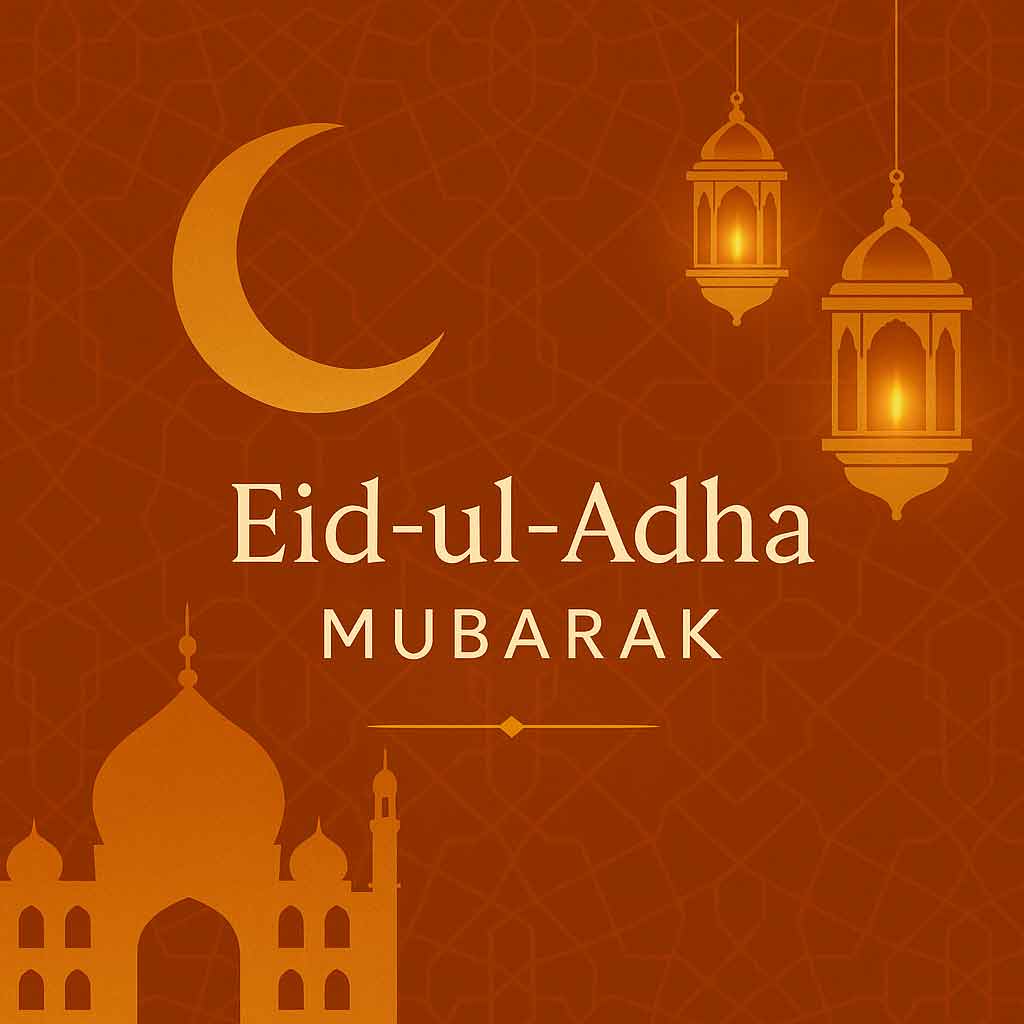Eid-ul-Adha
– The Festival of Sacrifice

Eid-ul-Adha: The Festival of Sacrifice and Faith
Eid-ul-Adha, also known as the Festival of Sacrifice, is one of the two most important Islamic festivals celebrated by Muslims worldwide. It commemorates the profound act of faith and obedience shown by Prophet Ibrahim (Abraham) when he was willing to sacrifice his beloved son, Ismail (Ishmael), as an act of submission to God’s command. Just as he was about to carry out the divine order, God intervened and provided a ram to sacrifice instead. This story, shared in various forms across Abrahamic faiths, symbolizes ultimate devotion, faith, and the willingness to surrender to God’s will.
Eid-ul-Adha falls on the 10th day of Dhul-Hijjah, the last month of the Islamic lunar calendar, following the completion of the Hajj pilgrimage in Mecca. The festival lasts for about three days, and its timing varies each year according to the sighting of the moon. For Muslims, Eid-ul-Adha is not only a time of celebration but also a spiritual occasion to reaffirm faith, perform acts of charity, and express gratitude for the blessings of life.
The day begins with a special congregational prayer, Salat al-Eid, offered in mosques or open grounds. Before the prayer, Muslims are encouraged to give Zakat al-Fitr or charity to the less fortunate, ensuring that everyone can share in the joy of the festival. The sermon that follows the prayer usually reminds the faithful about the values of compassion, obedience, and sacrifice.
The central ritual of Eid-ul-Adha is the Qurbani (sacrifice), which involves the slaughtering of an animal—usually a goat, sheep, cow, or camel—symbolizing the willingness of Prophet Ibrahim to sacrifice his son. The act is performed by those who can afford it, and the meat is divided into three equal parts: one portion for the family, one for relatives and friends, and one for the poor and needy. This sharing embodies the principles of equality, generosity, and social harmony that lie at the heart of Islam.
Beyond the ritual sacrifice, Eid-ul-Adha is a time for family gatherings, communal prayers, and festive meals. Homes are cleaned and decorated, new clothes are worn, and delicious dishes such as biryani, kebabs, and sweets are prepared and shared. The spirit of togetherness and gratitude permeates the celebrations, uniting families and communities in joy and devotion.
Eid-ul-Adha also coincides with the culmination of the annual Hajj pilgrimage, one of the five pillars of Islam. Every year, millions of Muslims travel to the holy city of Mecca to perform this sacred duty, retracing the steps of Prophet Ibrahim and his family. For those who cannot undertake Hajj, Eid-ul-Adha provides a spiritual connection to the pilgrims and an opportunity to renew their commitment to faith and service.
The deeper meaning of Eid-ul-Adha goes beyond the physical act of sacrifice. It is a reminder that true devotion lies in one’s willingness to give up personal desires for the sake of a higher purpose. The festival encourages believers to reflect upon the values of selflessness, empathy, and humility. It urges Muslims to help those in need, to strengthen bonds of kinship, and to live with integrity and compassion.
In essence, Eid-ul-Adha celebrates faith, sacrifice, and the spirit of giving. It teaches that devotion to God must manifest through acts of kindness and service to humanity. As families come together and communities reach out to the less fortunate, the festival becomes a powerful reminder of shared humanity and the enduring values that bind people together—faith, love, and compassion.
Eid-ul-Adha thus stands not just as a religious observance, but as a timeless lesson in moral and spiritual strength—a celebration of the human spirit’s capacity for faith, gratitude, and generosity.
